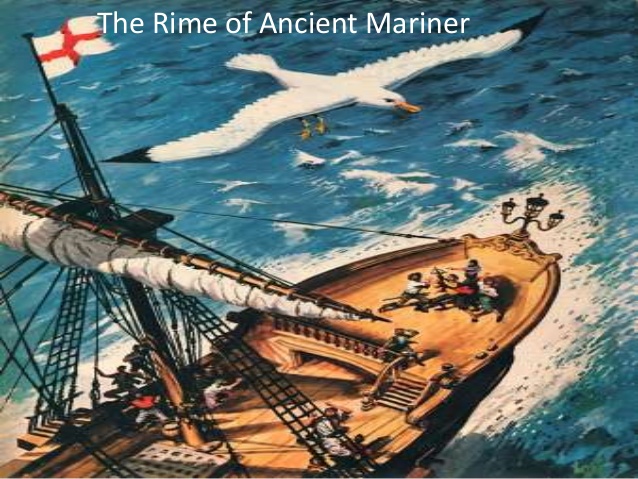Shakespeare’s influence and importance in English Literature:
There is no individual writer who has wielded greater influence than Shakespeare over the English language. He constantly satirized linguistic and stylistic fashions among his contemporaries and experimented with all kinds of innovations, dialectical adaptations, and archaisms which enriched the English language.
Shakespeare’s importance lies in his usage of the English language to individualize the characters in his plays. In this context, Shylock deserves special mention as Shakespeare’s most interesting creation for his language was different from that of anybody else’s. He had his Old Testament at his finger’s end and used biblical words which were found nowhere else in synagogue, Nazarite, publican and so on.
Shakespeare enriched the English language by breathing into it a lot of striking metaphors, new phrases and a host of new words which he coined. The metaphors which Shakespeare employed were out of the ordinary: “He cannot buckle his distempered cause with the belt of rule.” This magnificent metaphor of a dropsical body from Macbeth has been used to shed light on the disorganized state of Macbeth’s party. He introduced a number of phrases which have entered into our daily conversation like- ‘Pink of courtesy’, ‘hoist with his own petard’ and more.
Shakespeare introduced a number of words in the English vocabulary such as assassination, incardine, dwindle, enthrone and so on. He even tried to suggest local color through the usage of provincial words such as ‘pheeze’ in ‘Taming of the Shrew’ and ‘blood bolter’d’ in Macbeth. He formed a lot of new words by adding prefixes ‘en’ (or ‘em’) and ‘un’ such as endeared, enkindle, empoison, unexpressive, unkiss. He made new effective poetic compound adjectives like ‘daring-hardy’, ‘happy-valiant’ and fashioned nouns from verbs such as ‘fathere’d’, ‘spaniel’d’ and so on.
Shakespeare wrote on a variety of subjects and touched upon a number of human facts and relations which enabled him to create a vocabulary that is believed to comprise about 21000 words. Owing to his innovations and inclusions, he is now looked upon as one of the greatest individual contributors to the English language.
Features of Shakespeare’s Language:
There is no individual writer who has wielded greater influence than Shakespeare over the English language. He constantly satirized linguistic and stylistic fashions among his contemporaries and experimented with all kinds of innovations, dialectical adaptations, and archaisms which enriched the English language.
One of the chief features of Shakespeare’s writing was his use of the English language to individualize the characters in his plays. In this context, Shylock deserves special mention as Shakespeare’s most interesting creation for his language was different from that of anybody else’s. He had his Old Testament at his finger’s end and used biblical words which were found nowhere else in synagogue, Nazarite, publican and so on.
The most characteristic feature of Shakespeare’s use of English language is his boldness which can be observed in his usage of striking metaphors like the one of a dropsical body used to shed light upon the disorganized state of Macbeth’s party in “He cannot buckle his distempered cause with the belt of rule”; striking phrases like ‘Pink of courtesy’ in Romeo and Juliet and ‘Hoist with his own Petrard’ in Hamlet and the coinage of a host of new words like incardine, enthrone, blood bolter’d in Macbeth, pheeze in The Taming of the Shrew and so on.
He formed a lot of new words by adding prefixes and suffixes and made new effective poetic compound adjectives like ‘daring-hardy’, ‘happy-valiant’ and fashioned nouns from verbs such as ‘fathere’d’, ‘spaniel’d’ and so on.
Shakespeare often did not care about grammatical parallelism which resulted in usages like ‘the whole ear of Denmark’, ‘no mind of feasting forth’.
Another trait of Shakespeare’s language was the proximity of his poetical diction to his ordinary prose which he achieved without stepping outside his ordinary vocabulary and grammar and by using then colloquial words like thou, thee, ‘tis etcetera.
Because of these striking and innovative features, Shakespeare’s language is probably the most iconoclastic and enriched.
Shakespeare’s boldness:
There is no individual writer who has wielded greater influence than Shakespeare over the English language. He constantly satirized linguistic and stylistic fashions among his contemporaries and experimented with all kinds of innovations, dialectical adaptations, and archaisms which enriched the English language.
The most characteristic feature of Shakespeare’s use of English language is his boldness which can be observed in his usage of striking metaphors, phrases and words and coinage of a host of new words.
The metaphors which Shakespeare employed were out of the ordinary: “He cannot buckle his distempered cause with the belt of rule.” This magnificent metaphor of a dropsical body from Macbeth has been used to shed light upon the disorganized state of Macbeth’s party.
Shakespeare introduced a lot of phrases which comes across as striking and bold to the readers such as ‘To feed fat the ancient grudge’ from The Merchant of Venice, ‘To give everyman one’s ears’ from Hamlet, The be-all and the end-all’ from Macbeth and more. Some phrases like have entered into our conversation ‘To cudgel one’s brain’ (Hamlet) and ‘foregone conclusion’ (Othello) have undergone a change in meaning and usage now.
Shakespeare’s boldness can also be perceived in the many new words that he coined such as assassination, incardine, dwindle, enthrone and many more. He formed a lot of new words by adding prefixes ‘en’ (or ‘em’) and ‘un’ such as endeared, enkindle, empoison, unexpressive, unkiss. He made new effective poetic compound adjectives like ‘daring-hardy’, ‘happy-valiant’ and fashioned nouns from verbs such as ‘fathere’d’, ‘spaniel’d’ and so on.
Shakespeare often did not care about grammatical parallelism which resulted in usages like ‘the whole ear of Denmark’ and ‘no mind of feasting forth’ which is also a sign of boldness.
It was by the virtue of its boldness, that Shakespeare’s language is perhaps the most enriched and iconoclastic.
Shakespeare’s use of language for characterization:
There is no individual writer who has wielded greater influence than Shakespeare over the English language. He constantly satirized linguistic and stylistic fashions among his contemporaries and experimented with all kinds of innovations, dialectical adaptations and archaisms which enriched the English language.
One of the chief features of Shakespeare’s writing was his use of the English language to individualize the characters in his plays. According to Jespersen, “no author has shown greater skills in adapting language to character”.
In this context, Shylock, the most interesting creation of Shakespeare from the linguistic point of view deserves special mention as the language which Shakespeare put in his mouth was different from that of anybody else’s. With Shylock, Shakespeare tried his hand at an Anglo-Jewish dialect. He had his Old Testament at his finger’s end. He swore by Jacob’s staff and the holy Sabbath and addressed his servant Lancelot as Hagar’s offspring. Shylock used biblical words which were found nowhere else like synagogue, Nazarite, Publican and so on. The words used by Shylock were different from the accepted usage of his time. He says advantage in place of interest, usance in place of usury, equal for estimable for valuable and rheum for saliva. Shylock uses the plural form of money which is rare in Shakespeare. He alone uses some words like eanling, misbeliever and the verb bane which haven’t been used by any other Shakespearean character. His syntax was peculiar which is exemplified by utterances like – “I have no mind of feasting forth tonight where it should be no mind to and “Rend out” where it should be only rend.
Shakespeare made Shylock’s language peculiar on purpose to stamp him as being out of the common lot, to mark him off as a Jew. This particular feature of Shakespeare’s molding of the English language for characterization shows us how much at ease he was with this language and is also indicative that Shakespeare is indeed a true master of English who enriched it with his innovations.
Some online learning platforms provide certifications, while others are designed to simply grow your skills in your personal and professional life. Including Masterclass and Coursera, here are our recommendations for the best online learning platforms you can sign up for today.
The 7 Best Online Learning Platforms of 2022
- Best Overall: Coursera
- Best for Niche Topics: Udemy
- Best for Creative Fields: Skillshare
- Best for Celebrity Lessons: MasterClass
- Best for STEM: EdX
- Best for Career Building: Udacity
- Best for Data Learning: Pluralsight














